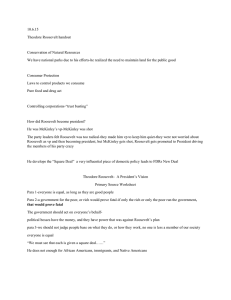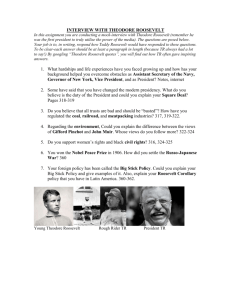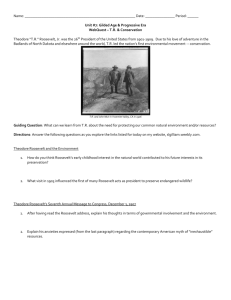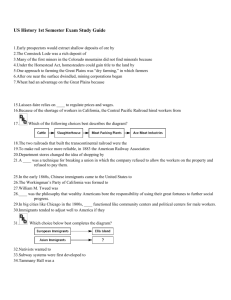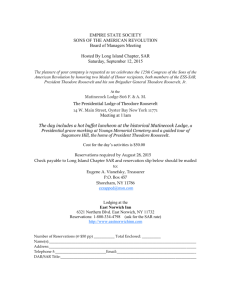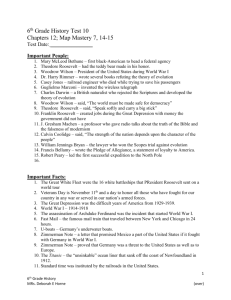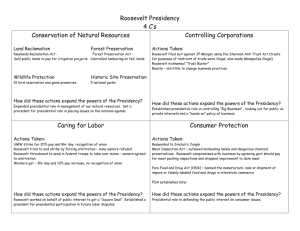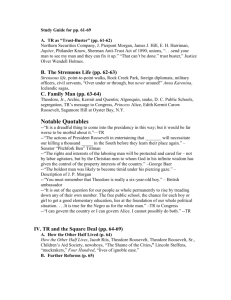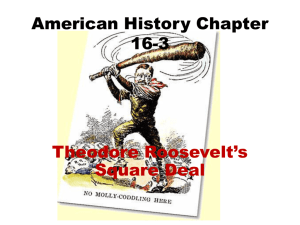10 Days Murder at the Fair
advertisement
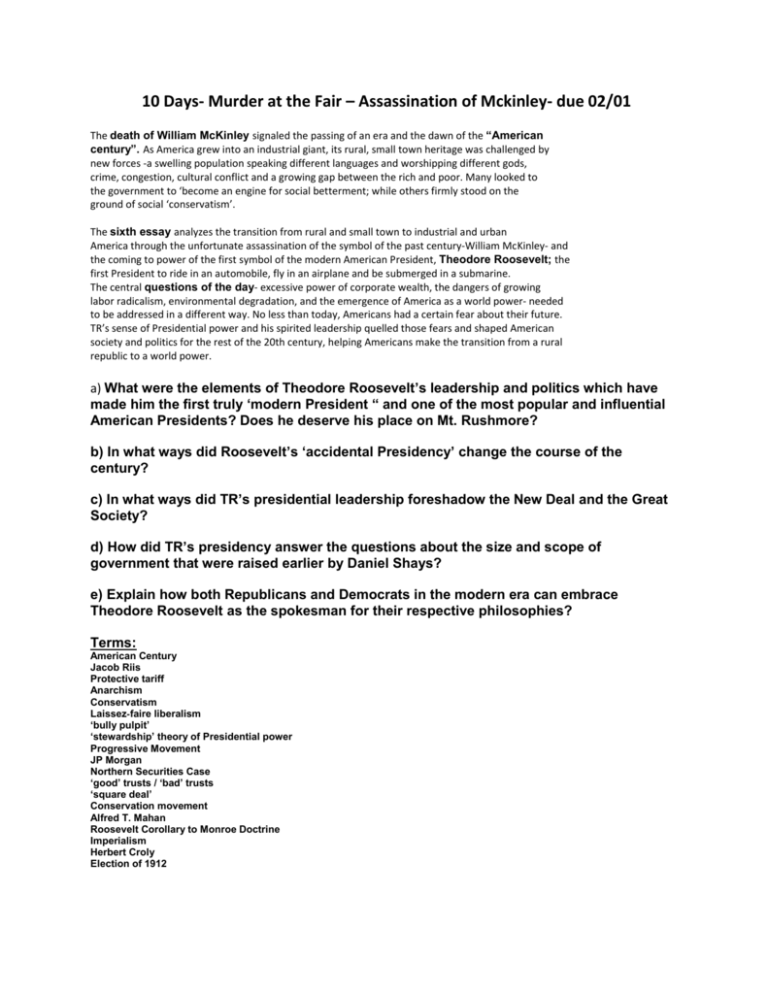
10 Days- Murder at the Fair – Assassination of Mckinley- due 02/01 The death of William McKinley signaled the passing of an era and the dawn of the “American century”. As America grew into an industrial giant, its rural, small town heritage was challenged by new forces ‐a swelling population speaking different languages and worshipping different gods, crime, congestion, cultural conflict and a growing gap between the rich and poor. Many looked to the government to ‘become an engine for social betterment; while others firmly stood on the ground of social ‘conservatism’. The sixth essay analyzes the transition from rural and small town to industrial and urban America through the unfortunate assassination of the symbol of the past century‐William McKinley‐ and the coming to power of the first symbol of the modern American President, Theodore Roosevelt; the first President to ride in an automobile, fly in an airplane and be submerged in a submarine. The central questions of the day‐ excessive power of corporate wealth, the dangers of growing labor radicalism, environmental degradation, and the emergence of America as a world power‐ needed to be addressed in a different way. No less than today, Americans had a certain fear about their future. TR’s sense of Presidential power and his spirited leadership quelled those fears and shaped American society and politics for the rest of the 20th century, helping Americans make the transition from a rural republic to a world power. a) What were the elements of Theodore Roosevelt’s leadership and politics which have made him the first truly ‘modern President “ and one of the most popular and influential American Presidents? Does he deserve his place on Mt. Rushmore? b) In what ways did Roosevelt’s ‘accidental Presidency’ change the course of the century? c) In what ways did TR’s presidential leadership foreshadow the New Deal and the Great Society? d) How did TR’s presidency answer the questions about the size and scope of government that were raised earlier by Daniel Shays? e) Explain how both Republicans and Democrats in the modern era can embrace Theodore Roosevelt as the spokesman for their respective philosophies? Terms: American Century Jacob Riis Protective tariff Anarchism Conservatism Laissez‐faire liberalism ‘bully pulpit’ ‘stewardship’ theory of Presidential power Progressive Movement JP Morgan Northern Securities Case ‘good’ trusts / ‘bad’ trusts ‘square deal’ Conservation movement Alfred T. Mahan Roosevelt Corollary to Monroe Doctrine Imperialism Herbert Croly Election of 1912
